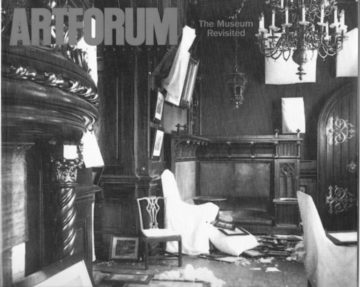Nina Power in Compact:
 For someone working in the culture industries, the only thing worse than having the wrong position on a political controversy is having no position at all. Today’s artists are the high priests of the secular middle classes, with cathedrals (art galleries) in every major city. In recent years, rather than defend free expression and the exploration of beauty, the passé concerns of previous centuries, the art world has become the moral directorate of the social order. Malevich’s 1915 “Black Square” became 2020’s Instagram BLM square—and woe betide anyone who failed to correctly perform the ritual. As Guy Debord put it in his 1988 “Comments on the Society of the Spectacle,” “since art is dead, it has evidently become extremely easy to disguise police as artists.”
For someone working in the culture industries, the only thing worse than having the wrong position on a political controversy is having no position at all. Today’s artists are the high priests of the secular middle classes, with cathedrals (art galleries) in every major city. In recent years, rather than defend free expression and the exploration of beauty, the passé concerns of previous centuries, the art world has become the moral directorate of the social order. Malevich’s 1915 “Black Square” became 2020’s Instagram BLM square—and woe betide anyone who failed to correctly perform the ritual. As Guy Debord put it in his 1988 “Comments on the Society of the Spectacle,” “since art is dead, it has evidently become extremely easy to disguise police as artists.”
The growing tendency of artists to pronounce on everything from microaggressions to macropolitics shows that we need a fundamentally different understanding of the role played by artists and their institutions. The trend reached an apex last week, as a whole spate of open letters about Israel and Gaza were furiously signed and published. The frenzy culminated in the sacking on Thursday of David Velasco, editor in chief of Artforum, the prestigious contemporary-art monthly. Since then, several other Artforum editors—Chloe Wyma, Zack Hatfield, and Kate Sutton—have resigned. The hashtag #BoycottArtforum is circulating on social media, asking people to refuse to open or share links to Artforum content or to participate in any Artforum interviews or events. As the critic Adam Lehrer acerbically commented on X, “I haven’t opened an Artforum link in years, so I’ve been doing hella activism.”
More here.
